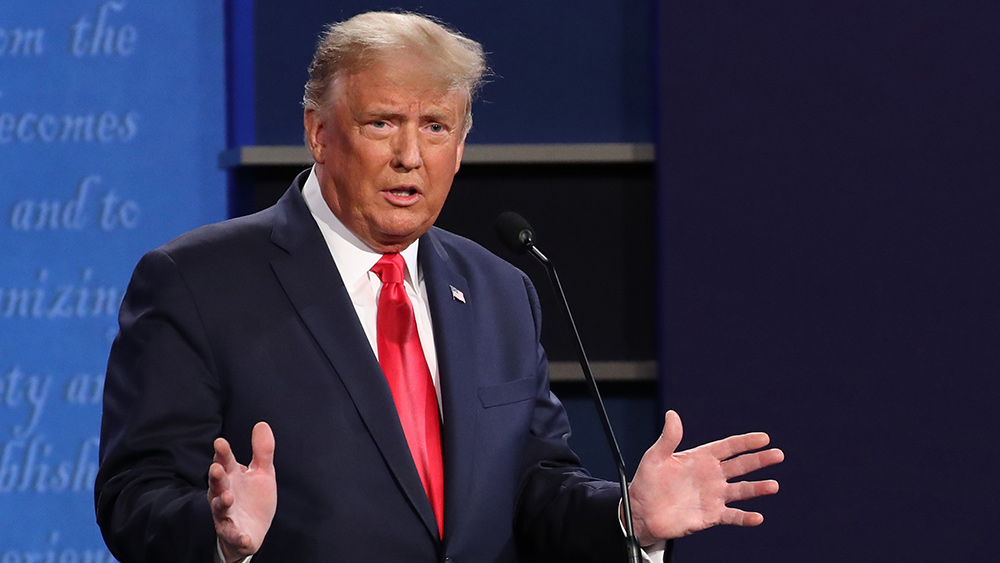Tell your representatives to vote NO against the RESTRICT Act (S.686)
04/04/2023 / By Ethan Huff

Under the pretense of protecting national security, two United States senators, Mark Warner (D-Va.) and Tom Thune (R-S.D.), have introduced a bipartisan bill that, if passed, will mean the end of the First Amendment.
Touted by the media as the “TikTok ban,” S.686 will supposedly stop foreign adversaries like communist China from interfering with and spying on Americans and American interests. The truth, however, is that its passage would spell the end of free speech online.
As stated in the bill, the RESTRICT Act gives the executive branch, meaning the presidency, the power to “[enforce] any mitigation measure to address any risk” regarding a “current, past, or potential future transaction” with what it deems to be a foreign adversary, i.e., communist China or Russia.
“It would also apply to taking action ‘to address any risk arising from any covered transaction by any person, or with respect to any property, subject to the jurisdiction of the United States,’ including ‘interfering in, or altering the result or reported result of a Federal election,'” one media report states.
Those found to be in violation of these provisions face hefty fines of up to $1 million as well as a possible jail sentence lasting 20 years. All of this centers primarily around TikTok, at least on the surface, because the social media app is based out of China. But the reality is that the language of S.686 could be applied to pretty much any app or online activity.
“I think we should ban TikTok, but I’m a little more concerned with the RESTRICT Act,” said Sen. J.D. Vance (R-Ohio), adding that he is “very worried” the RESTRICT Act will “creat[e], effectively, a PATRIOT Act for the digital age.”
Have a look at the bill’s language for yourself and let us know what you think about it.
(Related: Be sure to also check out our earlier coverage on the RESTRICT Act, which is a thinly disguised power grab by the federal government.)
Biden regime eager to see RESTRICT Act passed so it can target and punish its opponents
Sen. Rand Paul (R-Ky.), a constitutional conservative much like his father, also commented on the RESTRICT Act, warning that it is a “Trojan horse” just like the PATRIOT Act was.
“Prepare for the Patriot Act for the internet,” Paul tweeted.
In order to enforce the RESTRICT Act, the government will also pry into and spy on people’s computers and smartphones, which is another violation of the Constitution that too few media outlets are addressing in their coverage of the bill.
“It gives the government the ability to go after anyone they deem as a national security risk at which point they can access everything from their computer to video games to their ring light,” commented State Freedom Caucus Network communications director Greg Price.
As you might expect, the Biden regime is eager to see the RESTRICT Act passed, as it will allow for those who oppose its agenda to also be targeted. People caught criticizing the Biden regime online could be accused of threatening national security, allowing for large fines and prison time as punishment.
Amazingly, there is also very little to suggest that the RESTRICT Act would even do anything to stop actual foreign adversarial spying through apps like TikTok, which is supposed to be the purpose behind its passage.
“As it currently stands, the RESTRICT Act might result in action against TikTok but only after a drawn-out bureaucratic process in which unelected officials decide it could harm the U.S., six months after which a decision might be made to prohibit it, and the president might direct the attorney general to take legal action against it,” wrote Samuel Mangold-Lenett for The Federalist.
The latest news about the status of the RESTRICT Act can be found at Censorship.news.
Sources for this article include:
Submit a correction >>
Tagged Under:
Biden administration, big government, Big Tech, Censorship, conspiracy, deception, deep state, First Amendment, free speech, Glitch, Liberty, media fact watch, national security, patriot act, privacy watch, Restrict Act, S686, speech police, Suppressed, thought police, Trojan Horse
This article may contain statements that reflect the opinion of the author
RECENT NEWS & ARTICLES
COPYRIGHT © 2017 CORRUPTION NEWS



















